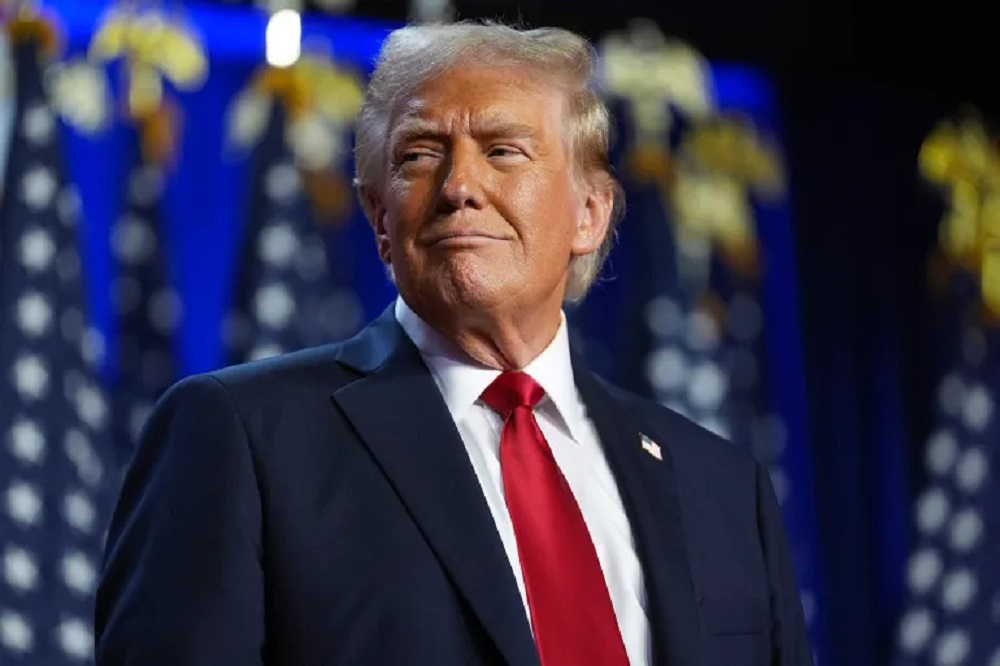Michigan Governor Gretchen Whitmer Warns Trump: Tariffs Threaten Auto Industry Jobs
In a private Oval Office meeting, Whitmer told President Trump that his tariffs are damaging Michigan’s economy and threatening the state’s automotive backbone.

In a private Oval Office meeting, Michigan Governor Gretchen Whitmer delivered a message President Donald Trump didn’t want to hear: the automotive industry he claims to be saving is being hurt by the tariffs he imposed.
The Democratic governor gave a visual presentation to make her case that the tariffs would cause significant damage to Michigan’s economy.
Whitmer–Trump Meetings
Just securing a meeting with the Republican president was an achievement for Whitmer, a strong contender for her party’s 2028 presidential nomination.
Her strategy for dealing with Trump highlights the challenge faced by her and other Democratic leaders: protecting their states’ economic interests while opposing his agenda. Whitmer’s approach contrasts sharply with that of many other Democratic governors.
Matt Grossmann, a political science professor at Michigan State University, noted that Whitmer’s ability to make “direct appeals” to Trump in private was unique in today’s political climate.
Although this was her third meeting with Trump at the White House since he took office in January, Tuesday’s meeting was far more private than their April encounter, when Whitmer unexpectedly appeared in Trump’s press conference and famously covered her face with a folder to avoid cameras.

Economic Warning
On Tuesday, Whitmer told Trump that the economic damage from tariffs could be severe in Michigan — the state that helped put him in the White House in 2024. She also pushed for federal support in recovering from an ice storm and for delaying changes to Medicaid.
Trump made no specific commitments, according to people familiar with the conversation.
Whitmer is not alone in warning about the potential devastation from Trump’s tariffs, which critics say could lead to factory job losses, falling profits, and higher prices. Trump, however, insists the tariffs are key to reviving America’s manufacturing.
White House spokesperson Kush Desai said no president has “shown more interest in restoring the dominance of America’s auto industry than President Trump,” pointing to new trade deals opening Japanese, Korean, and European markets to Michigan-made vehicles.
Trump and the Auto Industry
While Trump faces pushback from automakers, he has received praise from tech CEOs. Apple CEO Tim Cook recently gave Trump a custom glass plaque with a gold base and pledged $600 billion in investments. Trump claims $17 trillion in investment commitments, though such figures have yet to appear in economic data.
Trump’s trade framework imposes 50% import taxes on steel and aluminum, 30% on auto parts from China, and 25% on goods from Canada and Mexico outside the 2020 trade agreement. By contrast, German, Japanese, and South Korean cars face just a 15% import tax after recent negotiations.
Last week, Trump threatened a 100% tariff on semiconductors — essential to modern cars — with exemptions for U.S. producers.
Whitmer’s Case
Whitmer’s previous meetings with Trump brought gains for Michigan, but tariffs remain a difficult request for a president who strongly supports them.
Her presentation, obtained by the Associated Press, showed that trade with Canada and Mexico brought $23.2 billion in investment to Michigan since 2020. General Motors, Ford, and Stellantis operate 50 plants in the state, supported by 4,000 auto parts suppliers and nearly 600,000 manufacturing jobs.
Impact on Voters
Grossmann noted the key political question: will voters who expected Trump to help them turn on him if he fails to deliver economic growth?
AP VoteCast found Trump’s 2024 win in Michigan was largely due to two-thirds of voters describing the economy as “poor” or “not good,” with 70% of those holding negative views supporting Republicans. Opinions on tariffs were deeply split.

Corporate and Job Losses
Auto CEOs have repeatedly warned the administration that tariffs will cut profits and harm global competitiveness. Temporary delays have done little to offset costs: Ford reported $800 million in tariff-related expenses in Q2, while GM reported $1.1 billion. Ford CEO Jim Farley said tariffs will be a $2 billion net drag this year.
Since Trump returned to the White House, Michigan has lost 7,500 manufacturing jobs. Smaller suppliers like Detroit Axle have felt the strain, with layoffs narrowly avoided — for now.
Owner Mike Muszynski summed it up: “Right now, it’s about who can survive, not who can thrive.”



